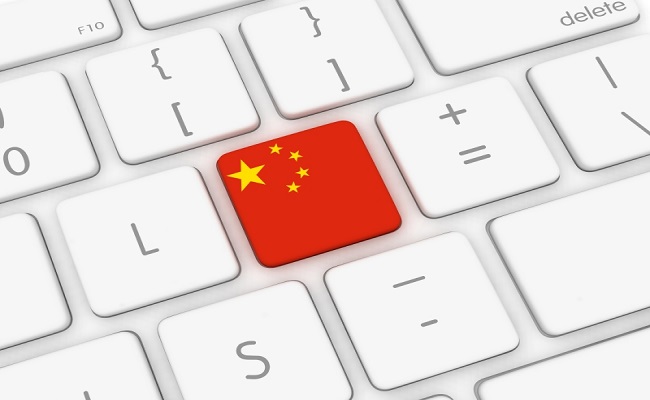This week data for China’s exports and imports showed robust growth despite forecasts that were less rosy; consumer inflation eased further; and Alibaba’s financial arm Alipay, the ‘Paypal of China’, got a makeover.
Trade and consumer prices
China’s exports and imports both grew unexpectedly in September, signaling healthier demand in and outside China, according to official data released on Monday.
The figure for exports climbed up 15.3% last month from the same period a year ago, higher than a Reuters’ poll that predicted a growth of 11.8%. Imports, on the other hand, rose by 7%, a reversal from the 2.4% year-on-year decline in August. The imports figure also beat the Reuters forecast of a 2.7% decline. The stronger comeback of imports, as a result, brought down the country’s trade surplus from the record high of $49.8 billion in August to $31 billion in September.
Barclay’s research note said that the new data supports their view that China’s economic growth will recover in the fourth quarter, when the holiday season usually boosts trade. But some other economists warned that China’s trade data has been volatile in the past and investors shouldn’t read too much into this.
On the other hand, consumer inflation last month continued to ease, according to the Consumer Price Index (CPI) data released on Wednesday. Prices rose by merely 1.6% in September, retreating from August’s 2% increase. The current figure is a new low for the past few years. At the same time, wholesale prices dropped by 1.8% after falling 1.2% in August.
Beijing wanted to contain inflation within 3.5%, but so far the deflationary pressure seems greater. On Tuesday China’s central bank cut the interest rate by 0.1% on 14-day repurchase agreements, the second rate cut within a month (on September 18 the rate was lowered by 0.2%). The central bank on Sunday encouraged commercial banks to issue mortgage loans for first-time homebuyers in the hope that this would buoy the housing market; but Beijing has so far refrained from massive stimulus packages, which many economists say may hurt China in the long term.
Local debt and ODI
It was reported earlier this week that China’s top economic planning agency—the National Development and Reform Commission (NDRC), had suspended approvals of enterprise bonds amid concerns of mounting liabilities of local governments.
Enterprise bonds, which analysts say are mainly issued by Local Government Financing Vehicles (LGFVs—state-owned enterprises that are established to get easy project financing because they’re considered to have zero default risk), are mostly used to finance infrastructure projects led by local governments. RMB 486.9 billion ($79.5 billion) of such bonds are due next year, according to Bloomberg. China’s local government debt rose by 67% from the end of 2010 to RMB 17.9 trillion by the end of June in 2013, according to the official audit report.
On Thursday, however, sources told the Chinese media that the NDRC, which reportedly declined to accept applications, has “partially resumed” processing those that contain risk prevention documents issued by provincial NDRC branches. NDRC has apparently not confirmed the suspension to the media.
Chinese enterprise bonds should not be confused with corporate bonds, which are issued by shareholding companies or limited liability companies and regulated by the China Securities Regulation Commission. Corporate China is also heavy in debt, but Chinese companies are pouring record sums of money into overseas market.
Outward direct investment (ODI) by non-financial companies in the mainland jumped by 90.5% in September to $9.8 billion, according to China’s Ministry of Commerce; the number soared by more than 100% year-on-year in August. In the first nine months, China Inc. invested $74.96 billion in 4,475 companies across 152 countries, up 21.6% from 2013. On the other hand, China has attracted $87.36 billion between January and September, a 1.4% decline from last year.
Alibaba’s financial empire
Alibaba’s lucrative affiliate Alipay got a makeover this week—it’s now called Ant Financial Services Group, an umbrella for all financial firms of the Alibaba family.
Ant executives told reporters that the group will become a fully-fledged, internet-based financial platform for small and mid-sized companies and online shoppers. The current six entities under the group include Alipay, Alipay Wallet (an app that incorporates the group’s multiple financial services such as buying into Yu’e Bao), Yu’e Bao (or ‘Balance Treasure’, a money market fund product), Zhao Cai Bao (a financial service platform), micro-loan provider Ant Micro and MYBank, a private bank that received its license last month.
Alipay was secretly spun off from the Alibaba Group to a smaller company controlled by Alibaba chairman Jack Ma in 2011; Ma argued that the transfer was necessary to comply with China’s national security regulations, which forbid foreign ownership of such sensitive financial information. The financial arm wasn’t part of the Alibaba IPO, but Alibaba stands to gain a lot financially if Ant goes public one day.
Hong Kong’s growth
The Occupy Central protest against Beijing’s handling of Hong Kong’s 2017 election reforms entered its third week and the police started clearing protesters and barricades, which resulted in clashes and the beating of one protester by several police officers.
The prolonged civil-disobedience movement has caused Goldman Sachs to lower Hong Kong’s growth forecast. The investment bank slashed its fourth quarter gross domestic product estimate to 2% from 2.5% on Monday, citing less tourism spending from the mainland as the main cause.
Earlier reports have shown that inbound tourism from the mainland picked up during the National Holiday Golden Week, but industry observers suggest that retail sales are tumbling due to shop closures.
In addition, the delay of the Shanghai-Hong Kong Stock Connect program seems to be inevitable—investors were expecting an announcement at a press conference today by the securities regulator but no specific date was given. The Shanghai Composite Index and the Heng Seng Index in Hong Kong fell this week.

















